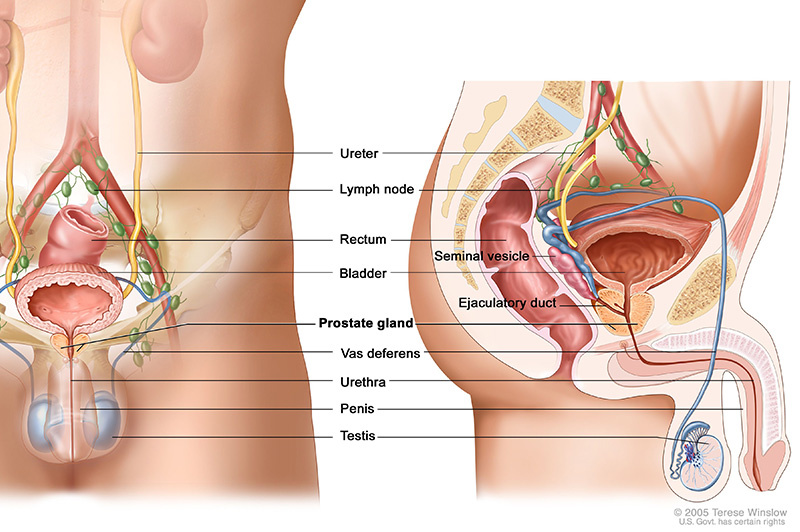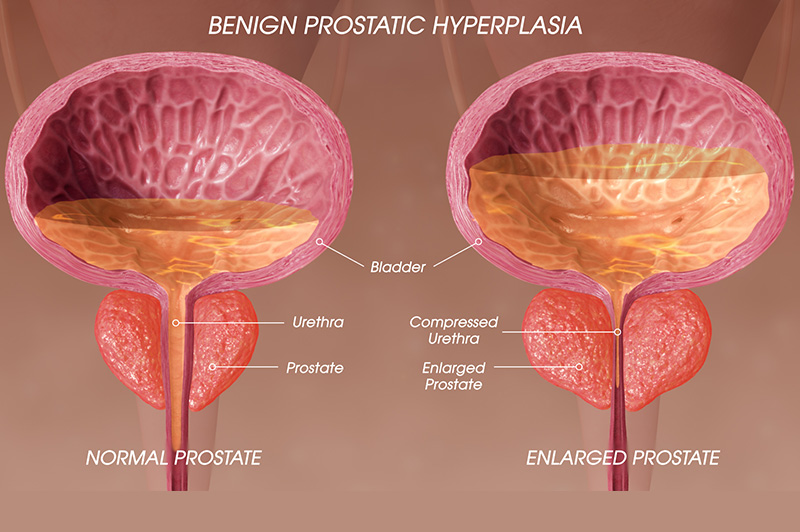
PROSTATE CANCER - Series 4
In the last 4 weeks, I have been discussing prostate health. This article will discuss the cancer of the prostate and all that you need to know about it.
What is cancer?
Cancer is an abnormal erratic increase in the growth of cells that can travel to other parts
of the body through blood circulation.
Cancer cells are deviants, they do not follow laid down rules of remaining in a confined
space, dying off within a specified time and sharing blood supplies with other cells.
Instead, they continue to grow and multiply without control, as well as creating their own
blood supply through newly formed fragile blood vessels. Cancer is second only to ischaemic heart disease as the most common cause of death
worldwide and the World Health Organization (WHO) projects that by 2060, it will become
the most common cause of death.
Prostate cancer is the second most common cancer in men, after lung cancer. Though
common, it is one of the least deadly cancers because it is mostly of low grade, therefore
does not progress aggressively when compared to other cancers such as stomach or
pancreas cancer. Prostate cancer is more common in the 7th decade and onward. Hence
the rate of survival is high, provided that the patient was diagnosed early and commenced
treatment as and when needed.
Risk factors
These are conditions that can increase a person’s risk of having prostate cancer. They are as follows;
- Older age: As people continue to age, their risk of having prostate cancer increases.
Therefore, most cases are seen in the elderly over 65 years of age. - Gender: Being Male increases your risk of prostate cancer.
- Genetics: Those who have had a family member that had prostate cancer have a
greater likelihood of having the disease. - Increased height: Taller men are at a higher risk when compared with shorter
counterparts. - Lack of exercise: Those who engage in little or no physical activity are at higher risk
of developing prostate cancer. - Obese men are at higher risk.
- Having high BP is a risk factor as well.
- Hormonal problems particularly elevated testosterone levels, as this hormone helps
the cancer cells to grow faster. - Ethnicity: Research has found prostate cancer to be more common in men of African origin and least common in Asians and American men.
- Exposure to toxins such as Agent Orange herbicide.
- Exposure to radiation.
Symptoms of prostate cancer
Symptoms are similar to those of BPH, some symptoms are more specific for prostate cancer. These are:
- Loss of appetite
- Weight loss
- Anemia
- Lower back pain, paralysis
Diagnosis of prostate cancer
To diagnose prostate cancer, blood tests, urine tests, scans, and prostate biopsy are done.
Blood test detects:
- Levels of prostate-specific antigen (PSA) at the onset of treatment and to monitor response to treatment. Increasing PSA can indicate disease progression.
- Kidney function tests
- Blood levels (full blood count)
- Hormonal profile
Ultrasound and Magnetic Resonance Imaging (MRI) scans can detect how big the prostate
has grown and can be used to monitor response to treatment as well. An ultrasound scan can
also guide the biopsy procedures.
To differentiate between BPH and prostate cancer, a little part of the prostate is taken (
biopsy) and viewed under the microscope (histology). The histology finding is the best way
to differentiate between both.
What is a Prostate biopsy?
The prostate biopsy is a minor procedure in which a part of the prostate is taken through the
anus. Done with local anesthesia, this procedure can be done in the clinic or minor theatre.
You are not put to sleep in the process. However, you are given some injections that numb
your pelvic region. Prostate biopsy is not painful because of the anesthetic that numbs the
area during the procedure. You will get pain relievers if you’re in pain when the anesthesia wears off. It is a day procedure and no admission except complications arise.
It’s not unusual to find streaks of blood in urine after the procedure but it clears out within a
few hours to days.
Where does prostate cancer spread to?
The cancer spreads easily through blood circulation or lymphatic drainage to other organs near it such as the large intestine and backbone and also to organs at distant sites such as
the liver and lungs. Some of the symptoms of prostate cancer arise from cancer spreading to
other organs. For instance,
- Spread to the backbone can cause dull aching lower back pain.
- Spreading to the lymph nodes in the abdomen can compress the pipe taking urine to the urinary bladder from the kidneys (ureters), consequently causing kidney failure.
- Fracture of the backbone and compression of the spinal cord can result in paralysis of
the lower limbs.
Treatment
Depends on the type of cancer. The growth of some prostate cancers depends on the production
of testosterone in the testes. In this group of patients, lowering testosterone levels either by
removing the testes or giving drugs that suppress testosterone production is the treatment of
choice. In addition, radiation and anticancer drugs are given.
The Definitive treatment of confined disease that is yet to spread is with radiation therapy,
total removal of the prostate, and cryotherapy ( as a last resort if radiation therapy fails).
Your doctor will discuss your test results, diagnosis, and treatment options so that you can
both decide on a suitable treatment plan.
Prognosis
Prostate cancer can be a cause of death in advanced disease, yet is one of the least deadly
cancers. It has one of the best 5-year survival rates of 70-100 percent. The outcome of treatment depends on the age of the patient, the type of cancer, and the presence of other underlying illnesses.
We have come to the end of the prostate series. hope you found it insightful and informative? We are open to questions, comments, and feedback.








Thanks. honestly, there were things I didn’t know about this subject until now.
Thank you for your comment, Levi. Please can you share your newly acquired knowledge?